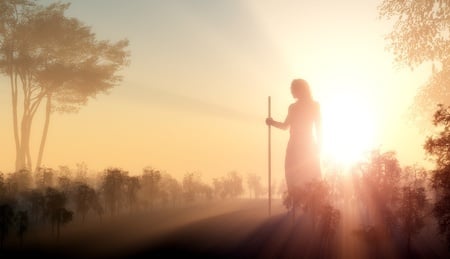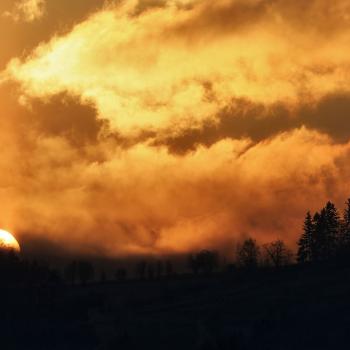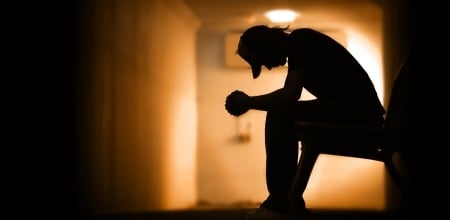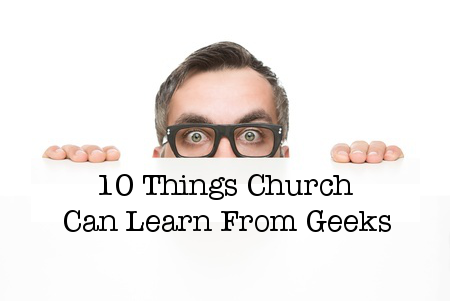
I don’t know.
Comforting, huh?
I know, I’m supposed to believe it happened. I’m supposed to have that kind of faith.
But, am I supposed to believe in a bodily Resurrection or a spiritual Resurrection?
Which Gospel account do I believe? Because they are different.
Amazingly brilliant believers have argued those questions for a very long time and come to no agreement.
So, Resurrection?
I don’t know.
As my theology professor, Dr. Tupper, was given to saying, “If there had been a video camera there that first Easter morning, I don’t think it would have recorded Jesus walking out of the tomb.”
The reality is, if any one tells you they know what happened that first Easter morning, they are wrong.
Because no one knows – even the biblical reports of what happened are second hand stories. No one saw it. They were told about it.
However, what I am most certain of is that there were a group of disciples who came to believe in Jesus’ resurrection – but it was not a fully-flesh-and-blood resurrection. They are careful to share their reports of Jesus “appearing” in ways flesh-and-blood particularly doesn’t “appear” — in the midst of them in locked rooms and vanishing when recognized.
People who, when Jesus was crucified by the ruling government, fled and hid for fear of their lives had something remarkable happen. They were changed. Very quickly, they move from fear and trembling to proclaiming and evangelizing. Almost too quickly – as if something transformed them from what they once were to what they had become. They move from fearing for their lives to risking their lives in a very short time. Something transformative happened.
I submit that that is the story of life.
Life is about transformations. The elements that make life possible happen because of the death of a star – life begins with an ending. Our own bodies survive by killing off (and replacing) some 100,000 cells per second. We are literally dying to live. The food we eat to survive begins with the death of an animal or ending of a seed.
Life is about transformations. Life is about the intimate and endless relationship between beginning and endings, life and death.
I also submit that that is the story of the resurrection.
Did the Resurrection really happen?
My answer is it doesn’t matter because it does happen – every day.
Life is full of endings – the death, the finish of something.
When you think about it, the things that scare us, disappoint us, bother us, and sometimes offend us the most are not actually the things themselves, but rather, it is partly about how those things represent an ending to us and our human instinct is to react negatively to endings.
Endings seem so final.
Some of these endings, these deaths are the obvious ones: we lose loved ones, an important relationship ends, an institution that was significant to us closes its doors, a building where we worked is boarded up.
Beyond the sadness connected with the permanent absence in our lives, there is also a part of us that mourns the ending itself.
Endings seem so final.
Then there are the endings, the deaths that are less obvious to us – like when things change.
We are not just upset about the new way of doing things, we are, in part, mourning the ending of the way things used to be. When we are not able to achieve a particular goal, we are not just upset about our inability to attain the aspiration, we are, in part, mourning the death of the self we believed could achieve those goals.
The story of the Resurrection is that endings are not final.
The story of the Resurrection is that Creation is wired for new beginnings.
The story of the Resurrection is that fear and hate and grief do not win the day.
Love does.
The story of the Resurrection is that “resurrection” is a verb – not a noun.
It’s something we live into; it’s not merely an event we remember.
Something changed for the disciples. It was transformative. That’s what resurrection both does and reminds us of: true love is transformative.
When the death and losses of life have us feeling lost and afraid, hopeless and helpless, resurrection reminds us that life is intimately and endlessly intertwined with death.
The things which we see as and endings are nothing more than opportunities for new beginnings.
And when those beginnings are rooted in love, we can transform even the worst ending into the most beautiful beginning.
Comforting, huh?
Consider supporting Mark’s blogging. Help create a market for Progressive Christianity. Not through big publishers or big denominations, but through the grassroots. We need to encourage the growth of progressive Christian voices in the marketplace. Even a dollar will help.
Facebook continues to make it increasingly difficult for me to let you know about new blog posts like this. Please consider signing up for my mailing list where we can insure you are notified. Just click here!
Mark is a co-founder of The Christian Left. Come and join the conversation!















